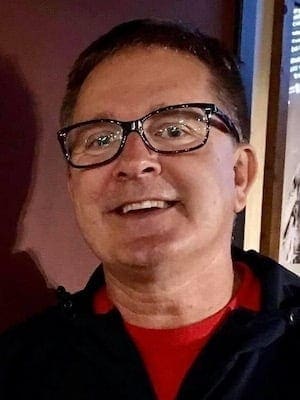My grandpa grew up on a dairy farm in Greenville, S.C. He was born in 1917, so he was a teenager during the Great Depression and at the beginning of Franklin Delano Roosevelt’s first term as president and the New Deal.
He had three sisters and four brothers; the eight children woke early in the morning and worked late into the evening to help sustain the farm and the family.
It was his job to rise at 4 a.m. and milk the cows before driving a school bus to Taylors High School, the same school building I would later attend as an elementary school student.
“I remember sitting on a stool, huddling beside the warm cow, squirting milk toward the open mouth of our barn cat on freezing winter days,” he told me as he reflected on those days.
His daddy owned the land, the animals and the equipment on the farm.
“There was too much work for just our family to do to keep the farm going,” he said, “so we hired black folks to help us do the work.”
Theirs was a small farm, so they didn’t have black sharecroppers living on their land. They hired day laborers to come to their house at sunup and work until sundown for a small wage and a shared lunch.
“Momma would cook the lunch and the family would eat together in the house while the black folks would eat outside or in the barn. That was the custom. It was what we knew,” he said, describing the black folks with words both simple and stark. “I guess I looked around our farm and saw them as tools,” he told me.
That was the way of white supremacy and Jim Crow. As an ideology and a system, it caused white folks to dehumanize black folks, to see them as objects instead of human beings.
“There was a teenager, about my age, who worked on our place,” he said. “His name was Billy and he helped me with my work.
“One day we were in the barn together, cleaning up the milking area, when he cut his hand on a piece of metal. Daddy wrapped it up in a rag soaked in kerosene, as was the remedy for most farm accidents at that time, and asked me to drive him home.
“As we headed toward the black folks’ part of our town, I thought to myself, ‘Billy must get up very early in the morning, earlier than me, to make it to our house on time.’
“As we drove up to his house, which was what we called a shack, I thought, ‘I wonder if Billy can stay warm in there.’
“As I saw him holding his injured hand and watched his momma hold him up and lead him up the creaking steps and through the rickety door, well, it seemed to be one of the first times I knew that black folks had hands and feet and needs just like me. They weren’t tools. They were people.”
I think this experience helped my grandpa start down the long road from white supremacy to equality – and plant in me a new way to see the world and people around me.
TrevorBarton teaches second grade and is a member of First Baptist Church in Greenville, S.C.
A fourth grade public school teacher and member of First Baptist Church in Greenville, South Carolina.

